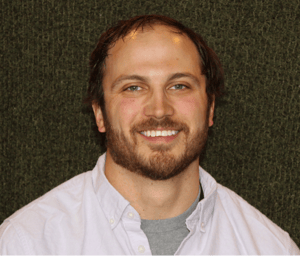Social Skills Programs at ABS
ABS Social Skills
We are changing the way Social Skills programs are run here at ABS. We will be running the 8 week programs, with three possible levels of classes for each of the two programs, 4 times a year with the next classes running Sept 28-Oct 2 through Nov 16-20. The program includes a one hour screening with Andy (for new clients who have not worked with Andy) and has a total cost of $320 which must be prepaid at first visit. If client/parents have already seen Andy and he knows the proper placement then the cost would be $280 ($35 per class which is typical group therapy insurance reimbursement rate).
We can start scheduling for the screening appointments now (call 801 935-4171 ext 0, or email info@alternativebehaviorstrategies.com). At the screening appointment, Andy will spend an hour clarifying goals and determining proper placement for the three levels of classes. The three levels of classes are designed to place children with others with whom they can interact well.
Social Skills Groups (by Andy Saalfield)
Social skills programs are intended to provide children and teens the opportunity to learn and practice appropriate social interactions in a safe and structured environment. These programs are designed to teach specific social skills that children and teens can take with them into their everyday lives and which will give them more confidence and success in social settings.
Alternative Behavior Strategies offers two social skills programs, depending on the age of the child. Both of these programs are geared toward children and teens who may have difficulty fostering positive relationships, who struggle with engaging in meaningful conversations with family and peers, or may lack confidence in social situations.
Alternative Behavior Strategies offers two social skills programs, depending on the age of the child. Both of these programs are geared toward children and teens who may have difficulty fostering positive relationships, who struggle with engaging in meaningful conversations with family and peers, or may lack confidence in social situations.
For younger children, 5-8 years of age, ABS utilizes the first eight units of the “Super Heroes” curriculum, each focused on a different social skill that, when used in conjunction with previous units, can help children manage a wide variety of social situations they may encounter. The first five units “Get Ready, “Following Directions,” “Reducing Anxiety,” “Participate,” and “Imitation” focus on a child’s presentation and behaviors. These units are more age and developmentally appropriate for younger children and incorporate a combination of videos, comics, and role playing to teach the lesson in a variety of ways. The final three units revolve around verbal communication skill development, specifically “Expressing Wants and Needs,” “Joint Attention,” and “Turn Taking.” At the end of the 8-week curriculum, it is the goal of the program that children will be able to incorporate lessons from each unit into their everyday communication.
For children and teens 9 years and older, ABS uses the “PEERS” (Program for the Evaluation and Enrichment of Relational Skills). This evidence-based curriculum has been used extensively to assist children with Autism Spectrum Disorders and other developmental disorders to learn social skills that are present in every day settings. Designed to incorporate parents in the learning process, PEERS involves homework and in-group activities for each unit that may often require the participation of parents or guardians.
The PEERS program curriculum is tailored for adolescents with a greater social repertoire, but still struggle to foster and maintain healthy relationships. The PEERS full curriculum is 14 units and depending on skills and ages, groups may move through these units at different paces. These units cover conversation basics including two-way conversations and entering and leaving conversations, also the curriculum teaches skills regarding electronic communication, choosing appropriate friends, using humor, social outings, sportsmanship, teasing and bullying, and social rejection. These units are structured and outlined by the creators of the PEERS program to promote and learn from social interactions within the social group settings that can be used at home, school, or at lunch with friends.
Social skills groups such as these are intended to give children with poor or limited social skills the opportunity to learn new ways of interacting with peers, improve communication within the home and school, and to enhance their every day lives. So, if you child has a hard time talking to peers, making friends, or struggles to maintain relationships, social skills groups may be able to help
Social Skills Group Curriculum
Here’s a brief overview of the curriculum for the two programs.
SuperHeroes Kids age 5-8.
All weeks will included homework and in-group and at-home activities for the participants:
- Week 1. Getting Ready
- Week 2. Following Directions
- Week 3. Reducing Anxiety
- Week 4. Participation
- Week 5. Imitation
- Week 6. Expressing Wants and Needs
- Week 7. Joint Attention
- Week 8. Turn Taking
(These titles taken from the SuperHeroes manual)
PEERS Kids and teens aged 9+
For older participants, the groups will focus more heavily on communication skills.
All weeks will included homework and in-group and at-home activities for the participants:
- Week 1. Introduction and Trading Information
- Week 2. Conversational Skills: Two-Way Conversations
- Week 3. Conversational Skills: Electronic Communication
- Week 4. Choosing Appropriate Friends
- Week 5. Appropriate Use of Humor
- Week 6. Conversational Skills: Entering a Conversation
- Week 7. Conversational Skills: Exiting a Conversations
- Week 8. Social Outing and Get-Togethers
(These titles taken from the PEERS manual)

.png)
.png)